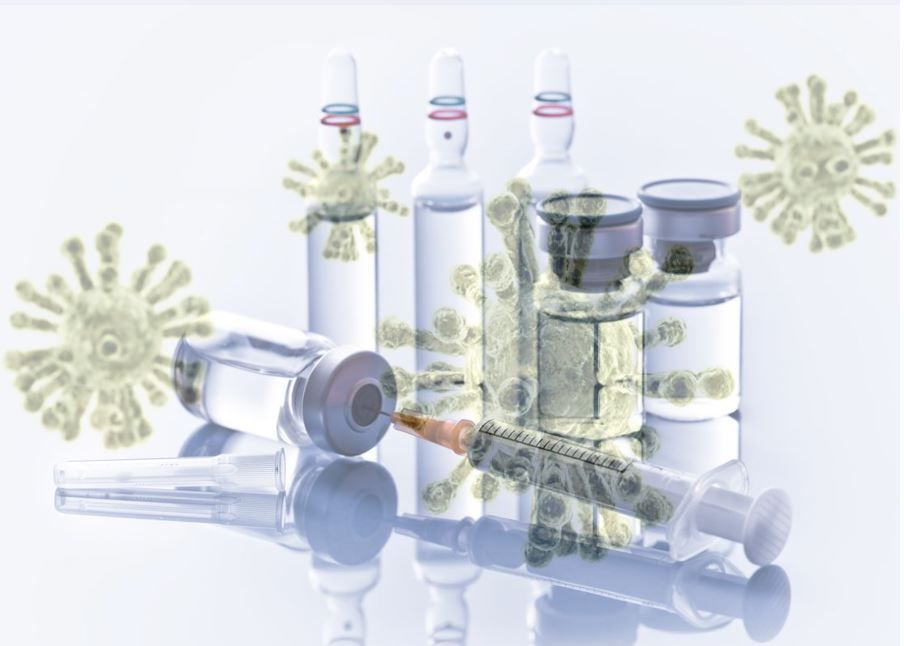A potential coronavirus vaccine in joint development by Oxford University in the UK and AstraZeneca has produced a strong immune response in a large phase 1/2 trial, according to data published today in The Lancet.
The vaccine, AZD122 (previously ChAdOx1 nCoV-19), combines genetic material from the coronavirus that is expressed on the surface of SARS-Cov2 (spike glycoprotein) with a weakened, non-replicating version of the adenovirus ChAdOx1.
The announcement follows similar news reported on July 14 by biotechnology company Moderna whose SARS-CoV2 vaccine messenger RNA [mRNA]-1273 produced a strong immune resposne across all dose levels tested.
The phase 1/2, single-blind, randomised controlled trial was conducted at 5 sites in the UK and compared ChAdOx1 nCoV-19 with a control injection of a meningococcal conjugate vaccine (MenACWY).
Study population comprised healthy adults aged 18–55 (median 35) years with no history of laboratory-confirmed SARS-CoV-2 infection or of COVID-19-like symptoms; 49.8% were women and the majority were white. Baseline characteristics were assessed tp be similar between randomized groups. Participants were randomly assigned (1:1) to receive ChAdOx1 nCoV-19 at a dose of 5 × 10¹⁰ viral particles or MenACWY as a single intramuscular injection.
Ten participants assigned to a non-randomised, unblinded ChAdOx1 nCoV-19 prime-boost group received a two-dose schedule, with the booster vaccine administered 28 days after the first dose.
A protocol amendment in 2 of the 5 sites allowed prophylactic paracetamol to be administered before vaccination.
Humoral responses at baseline and following vaccination were assessed using a standardized total IgG ELISA against trimeric SARS-CoV-2 spike protein, a muliplexed immunoassay, 3 live SARS-CoV-2 neutralization assays, and a pseudovirus neutralisation assay.
Cellular responses were assessed using an ex-vivo interferon-γ enzyme-linked immunospot assay.
Co-primary outcomes: assess ChAdOx1 nCoV-19 efficacy, as measured by cases of symptomatic virologically confirmed COVID-19, and safety, as measured by the occurrence of serious adverse events.
Role for T-cell response in COVID-19 mitigation
The authors note the growing body of evidence to suggest
that T-cell responses play an important role in COVID-19 mitigation. Individuals who have been exposed but remained asymptomatic have demonstrated a "robust" memory T-cell response without symptomatic disease in absence of a measurable humoral response.
Adenovirus-vectored vaccines are known to induce strong
cellular immunity and ChAdOx1 nCoV-19 vaccination resulted in marked increases in SARS-CoV-2 spike-specific effector T-cell responses as early as day 7, peaking at day 14 and maintained up to day 56 as expected with adenoviral vectors.
Between April 23 and May 21, 2020, 1077 participants were enrolled and assigned to receive either ChAdOx1 nCoV-19 (n=543) or MenACWY (n=534); 10 were enrolled in the non-randomised ChAdOx1 nCoV-19 prime-boost group.
In the ChAdOx1 nCoV-19 group, spike-specific T-cell responses peaked on day 14. Anti-spike IgG responses rose by day 28, and were boosted following a second dose. Neutralizing antibody responses against SARS-CoV-2 rose aftert the initial dose and were detected in all participatns following a second vaccine dose. Neutralising antibody responses correlated strongly with antibody levels measured by ELISA.
Local and systemic reactions were more common in the ChAdOx1 nCoV-19 group vs the control group and included pain, feeling feverish, chills, muscle ache, headache, and malaise (all p<.05); many were reduced by using prophylactic acetaminophen. There were no serious adverse events related to ChAdOx1 nCoV-19.
“There is still much work to be done before we can confirm if our vaccine will help manage the COVID-19 pandemic,” said vaccine developer Sarah Gilbert, professor vaccinology, the University of Oxford, in an interview with Rueters. “We still do not know how strong an immune response we need to provoke to effectively protect against SARS-CoV-2 infection.”
The authors state that these preliminary results have supported progress in clinical development in ongoing phase 2 and 3 trials. Researchers are now recruiting for additional trials older adults with comorbidities, healthcare workers, and those with higher risk for SARS-CoV-2 exposure. Once sufficient data are reported in adults, the researchers say the vaccine will be evaulated in children.
Phase 3 trials are now underway in Brazil, South Africa, and the UK and will evaluate vaccine efficacy in diverse populations.

